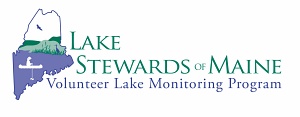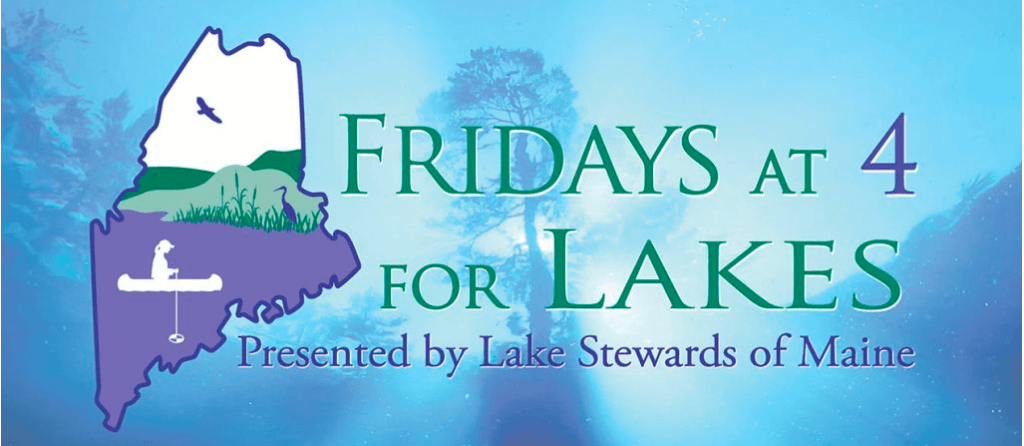
Quick Links
Latest News from LSM
Forms & Data Sheets
In lieu of our Annual Lake Monitoring Conference for 2020, Lake Stewards of Maine hosted a series of weekly informational webinars from June through August on a wide range of topics pertaining to Maine Lakes. The sessions were recorded and are approximately one hour in length, including Q&A after the presentation. Future events in a similar style will take place and are open to Maine’s citizen lake scientists, as well as the general public. If you are interested in staying informed about future programs please contact us HERE.
The Crown Jewel Lakes of Central Maine, and the Threats They Face
Presented by Matt Scott and Lloyd Irland; aired Friday, June 5
Maine is fortunate to have some of the clearest and cleanest lakes in the nation, several thousand of which are in public domain. However, all of our lakes are vulnerable in varying degrees to a growing number of anthropogenic-based threats. We are part of the problem, and we have the ability to be the solution, as well. Matt Scott and Lloyd Irland share their experience and perspective on where we are, how we got here, and what can be done to ensure that our lakes will remain healthy for the enjoyment of future generations.
 Matt Scott, Aquatic Biologist, Emeritus; Maine DEP, Past President of the North American Lake Management Society, is the founding father of Maine’s “Lakes Program”. He was the first biologist hired through the Maine DEP in the early 1970’s, at which time he established a lake-focused research and protection unit that soon gained widespread recognition and respect. Matt was the driving force behind the formation of the first statewide citizen lake monitoring program, which continues to this day as Lake Stewards of Maine. He currently lives in Belgrade and is a member of the Lake Stewards of Maine Advisory Board.
Matt Scott, Aquatic Biologist, Emeritus; Maine DEP, Past President of the North American Lake Management Society, is the founding father of Maine’s “Lakes Program”. He was the first biologist hired through the Maine DEP in the early 1970’s, at which time he established a lake-focused research and protection unit that soon gained widespread recognition and respect. Matt was the driving force behind the formation of the first statewide citizen lake monitoring program, which continues to this day as Lake Stewards of Maine. He currently lives in Belgrade and is a member of the Lake Stewards of Maine Advisory Board.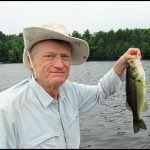
Lloyd Irland, PhD; Research Scientist, Author & Consultant has served in Maine state and local government, as a consultant, and an author writing on a range of topics concerning Maine’s natural resources. He has recently advanced the research regarding changes in the phenology of ice cover on Maine lakes. He has been involved in these lakes for many years, serving on the Belgrade Planning Board, the Wayne Comprehensive Planning Committee and select Board, and its Conservation Commission. He is also a member of the Lake Stewards of Maine Advisory Board. Lloyd is currently writing a book on Maine’s wildland rivers, and he lives on a tributary to Androscoggin Lake in Wayne.
Lindsay Papa will be a senior at Colby College next year and is currently a summer intern with Lloyd Irland. She has assembled much of the data used in this presentation.
The Influence of A Warming Climate on Aquatic Invaders in Maine Lakes
Presented by Roberta Hill; aired Friday, June 12 at 4pm
A warming climate will not be beneficial to our lakes. Aquatic invaders that are presently not able to survive in Maine will likely benefit from warmer lakes. Roberta Hill will discuss how the phenomenon of climate change may change our lakes as we know them.
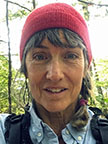
Roberta is an aquatic ecologist and environmental educator. She has been active in the field of lake protection and community outreach in Maine for thirty years and has been instrumental in the creation and development of some of Maine’s most successful and long-standing lake education programs.
Currently the Invasive Species Program Director for Lake Stewards of Maine, Roberta is the originator and coordinator of LSM’s internationally recognized Invasive Plant Patrol (IPP) program, through which close to 5,000 individuals (volunteers, professionals, agency personnel, students, teachers and others) have been trained to screen Maine waterbodies for the presence of invasive aquatic plants. Roberta is the principal author of the Maine Field Guide to Invasive Aquatic Plants and co-author of Citizens’ Guide to Invasive Aquatic Plant Management.
Metaphyton in Maine Lakes: What Is It? Should We Be Concerned?
Presented by Scott Williams; aired Friday, June 19 at 4pm
For more than a decade, public anecdotal observation has suggested that metaphyton, aka green cotton candy-like filamentous algae, has been increasing in Maine lakes. But is it – and if it is, should we be concerned? Citizen scientists can play an important role in answering these persistent questions.

Scott Williams is a Limnologist with more than four decades of experience working on the assessment and protection of lakes and ponds throughout Maine. During this time, he has advised numerous local and regional lake associations, community watershed planning groups, conservation commissions, town planning boards, land trusts, and other entities focused on the protection of Maine’s aquatic resources.
Scott has been the Executive Director of Lake Stewards of Maine since the program transitioned from state government to an independent nonprofit organization in the mid-1990’s. He is past-President and long-time Science Advisor to the Congress of Lake Associations and the Maine Lakes Society, and former co-chair of the Maine Council on Environmental Monitoring and Assessment. He was a founding member of Maine’s Task Force on Invasive Aquatic Species and has served on numerous technical advisory committees in the development of lake water quality protective standards for Maine’s lakes.
Under Scott’s leadership, Lake Stewards of Maine has grown and diversified. The organization has served as a national and international model, known for its effective and creative approaches used in engaging, training, and supporting volunteers.
His work has been recognized by the US EPA, the Maine Legislature, the Natural Resources Council of Maine, Soil and Water Conservation Districts, and the North American Lake Management Society, which presented him its Technical Excellence Award in 2000.
Citizen Stewards and Maine Lakes: Collaborative Approaches for Sustainable Systems
Presented by Firooza Pavri, Ph.D.; aired Friday, June 26 at 4pm
Freshwater resources provide vital societal and ecosystem services. Keeping our lakes and ponds healthy for future generations will require that we strive to gain a more nuanced understanding of the complex factors that influence their well-being. Historically, models aimed at identifying which Maine lakes may be most vulnerable to ecosystem decline have rarely considered the role that private citizens may play in the process. However, local citizen stewardship efforts such as water quality and invasive plant monitoring, watershed surveys, and other citizen-driven conservation and management efforts can be a major factor in determining the long-term resilience of an aquatic ecosystem. In this webinar, Dr. Pavri will share her recent research looking at the important role that citizen lake scientists and other lake residents play in protecting Maine waters for the future, and how we can use this information to more clearly determine lake vulnerability.

Firooza Pavri, PhD, is the current Director of the Muskie School of Public Service and a Professor of Geography at the University of Southern Maine. She is originally from India and earned her M.A. and Ph.D. degrees in the Midwest, at the University of Toledo and Ohio State University, respectively.
Firooza teaches and conducts research in the area of environmental geography, with a focus on society-environment interactions, natural resource conservation and policy, sustainable development, and geospatial technologies, including remote sensing. Some of her recent research has been in collaboration with researchers from the University of Maine to assess the vulnerability of Maine lakes to water quality decline. Her part in this project considers the role of lake associations and stakeholders in data collection, monitoring, and conservation management vis-à-vis lake stewardship.
She is also a member of the Lake Stewards of Maine Advisory Board.
Northeast Climate Trends, Tracking Increasing Harmful Algal Blooms, and the Vital Role of Citizen Science in this Research
Presented by Hilary Snook; Aired Friday, July 10 at 4pm
In recent years, the occurrence of harmful algal blooms (HAB) has been increasing throughout New England. Climate trends here in the Northeast may be contributing to this phenomenon. Through his introduction of the new US EPA BloomWatch App, Hilary Snook will discuss the role citizen science can play in understanding the trends, toxicity, and expanse of HABs.

Mr. Snook is a senior scientist for USEPA’s New England regional Laboratory. He holds a bachelor’s degree from Montana State University and a Master’s degree in civil and environmental engineering from Tufts University. His work involves the coordination and management of water quality and aquatic biological monitoring surveys for the region and provides a supporting role for national aquatic resource surveys presently being initiated by the EPA. He has implemented ecological assessments of conditions for wadeable streams, large rivers, lakes and ponds, and near coastal waters for the past twenty years with a focus on the development of biological indicators for assessing aquatic resource condition, and the transport of contaminants through food webs and the environment.
An Overview of Citizen Lake Watershed Surveys
Presented by Amanda Pratt; Aired Friday, July 17 at 4pm
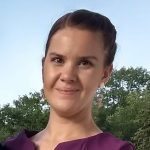 An overview of how to plan and conduct a volunteer lake watershed survey to identify sources of erosion that negatively impact water quality.
An overview of how to plan and conduct a volunteer lake watershed survey to identify sources of erosion that negatively impact water quality.
Amanda Pratt is an Environmental Specialist with the Maine DEP’s Watershed Management Unit. She has over 7 years of experience working on lake water quality issues in Maine.
Lake Ice Regimes: Some Baffling Trends and Challenges for Citizen Science
Presented by Lloyd Irland; Aired Friday, July 24 at 4pm
Maine’s lakes are clear in no small part due to the fact that historically they have been covered with ice and snow. Recent studies have shown that a warming climate is affecting this relationship. Lloyd Irland has advanced the research pertaining to historical lake ice data through additional analysis, and by taking into account the total period of ice cover, including “ice-in” information, where available.
Lloyd Irland, PhD; Research Scientist, Author & Consultant has served in Maine state and local government, as a consultant, and an author writing on a range of topics concerning Maine’s natural resources. He has recently advanced the research regarding changes in the phenology of ice cover on Maine lakes. He has been involved in these lakes for many years, serving on the Belgrade Planning Board, the Wayne Comprehensive Planning Committee and select Board, and its Conservation Commission. He is also a member of the Lake Stewards of Maine Advisory Board. Lloyd is currently writing a book on Maine’s wildland rivers, and he lives on a tributary to Androscoggin Lake in Wayne.
What You Need to Know About Lake Algae
Presented by Alan Baker, PhD; Airing Friday, July 31 at 4pm
An introduction to the basic biology, taxonomy, and terminology is needed to better understand lake algae and its role in the aquatic ecosystem. This session will provide an overview of some of the more common types of algae found in Maine lakes including cyanobacteria.

It has been said of Alan L. Baker PhD., Professor Emeritus of Botanical Sciences, University of New Hampshire, that “his knowledge of freshwater algae surpasses most other scientists worldwide.” In collaboration with UNH professor Jim Haney, Alan has led the development and extensive online image-based key to “algae, cyanobacteria and other aquatic objects.” Since its inception in 2010, PhycoKey has served over two million users. Professors Baker and Haney are also founding members of the New Hampshire Lakes Lay Monitoring Program. Recently retired after 47 years of teaching at UNH, Alan remains very active in the pursuit of “what organisms do, their ecology, and their physiology,” and continues his work on PhycoKey, adding information to accompany the extensive photo library.
Healthy Vegetated Buffers – Healthy Lakes!
Working with Mother Nature to Protect the Waters of Maine
Presented by Roberta Hill; Aired Friday, August 7 at 4pm
Roberta Hill, LSM Invasive Aquatic Species Director, will return to her “roots” in lake protection, extolling the many virtues and benefits of vegetated buffers.

Roberta is an aquatic ecologist and environmental educator. She has been active in the field of lake protection and community outreach in Maine for thirty years and has been instrumental in the creation and development of some of Maine’s most successful and long-standing lake education programs.
Currently, the Invasive Species Program Director for Lake Stewards of Maine, Roberta is the originator and coordinator of LSM’s internationally recognized Invasive Plant Patrol (IPP) program, through which close to 5,000 individuals (volunteers, professionals, agency personnel, students, teachers, and others) have been trained to screen Maine waterbodies for the presence of invasive aquatic plants. Roberta is the principal author of the Maine Field Guide to Invasive Aquatic Plants and co-author of Citizens’ Guide to Invasive Aquatic Plant Management.
